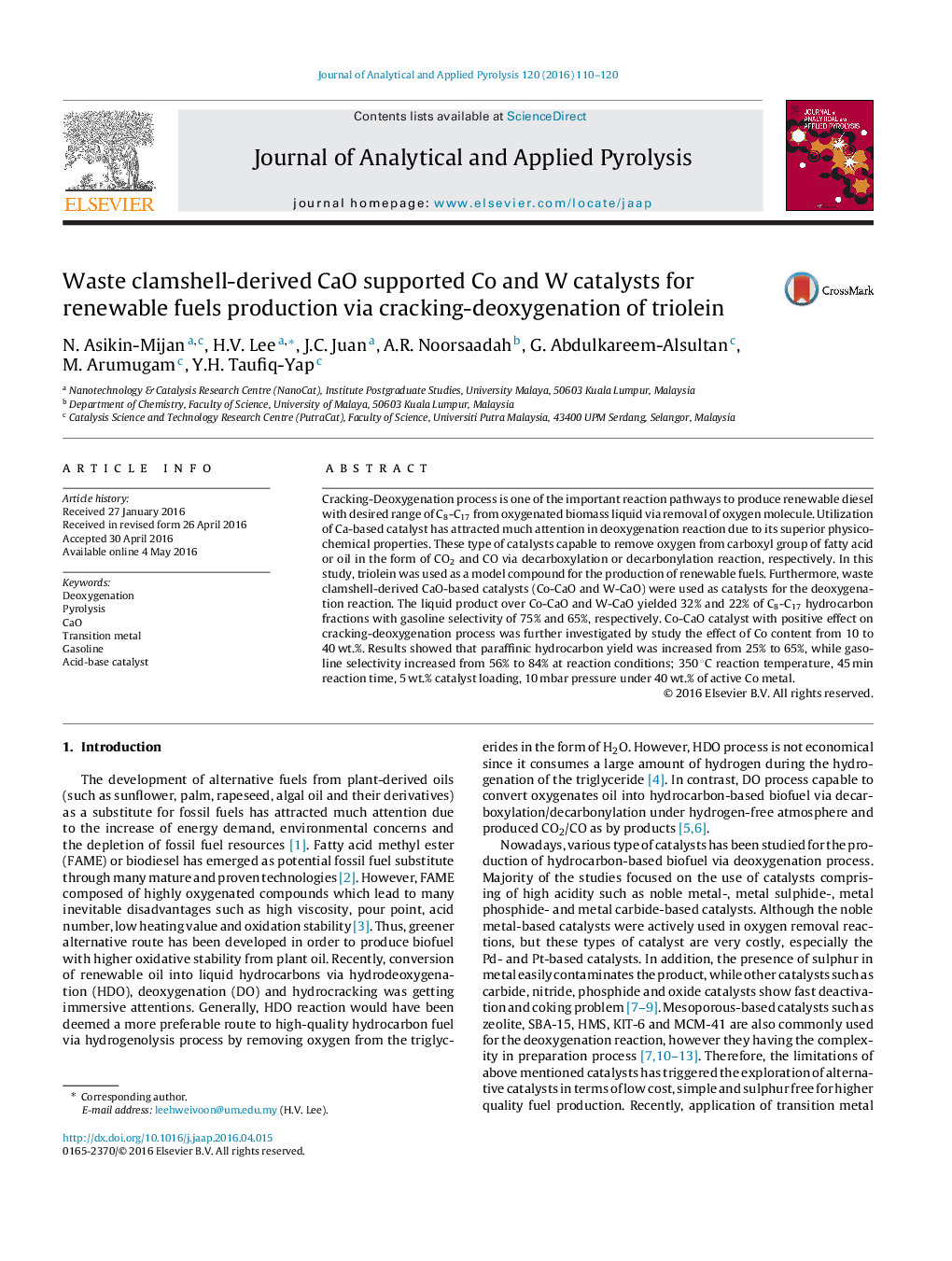| Article ID | Journal | Published Year | Pages | File Type |
|---|---|---|---|---|
| 1196534 | Journal of Analytical and Applied Pyrolysis | 2016 | 11 Pages |
•Utilization of waste clamshell for the synthesis of CaO support.•Co- and W-doped CaO were used as catalysts for deoxygenation of triolein.•The reaction favoured for the production of gasoline-ranged products (C8-C12).•Strong acidity-basicity of Co-CaO favoured cracking-decarboxylation pathways.•Optimum 40 wt.% of Co active metal rendered highest yield of gasoline fractions.
Cracking-Deoxygenation process is one of the important reaction pathways to produce renewable diesel with desired range of C8-C17 from oxygenated biomass liquid via removal of oxygen molecule. Utilization of Ca-based catalyst has attracted much attention in deoxygenation reaction due to its superior physicochemical properties. These type of catalysts capable to remove oxygen from carboxyl group of fatty acid or oil in the form of CO2 and CO via decarboxylation or decarbonylation reaction, respectively. In this study, triolein was used as a model compound for the production of renewable fuels. Furthermore, waste clamshell-derived CaO-based catalysts (Co-CaO and W-CaO) were used as catalysts for the deoxygenation reaction. The liquid product over Co-CaO and W-CaO yielded 32% and 22% of C8-C17 hydrocarbon fractions with gasoline selectivity of 75% and 65%, respectively. Co-CaO catalyst with positive effect on cracking-deoxygenation process was further investigated by study the effect of Co content from 10 to 40 wt.%. Results showed that paraffinic hydrocarbon yield was increased from 25% to 65%, while gasoline selectivity increased from 56% to 84% at reaction conditions; 350 °C reaction temperature, 45 min reaction time, 5 wt.% catalyst loading, 10 mbar pressure under 40 wt.% of active Co metal.
Graphical abstractFigure optionsDownload full-size imageDownload as PowerPoint slide
